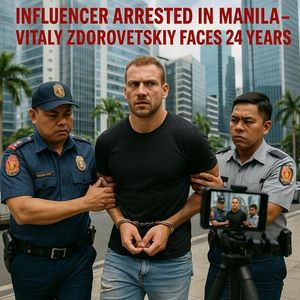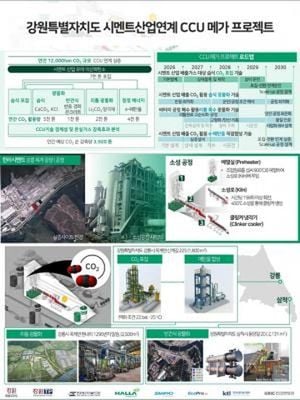Italian authorities have made headlines following the arrest of Sister Anna Donelli, a 57-year-old nun known for her compassionate work with inmates, among 25 individuals linked to the infamous ‘Ndrangheta mafia. This operation, which occurred on December 5, targeted suspected members of the organized crime network operating mainly out of Brescia, northern Italy, and has stirred both shock and outrage across the nation.
According to sources familiar with the case, Sister Donelli has been accused of colluding with mafia members by acting as an intermediary between them and incarcerated gang members. She had been providing her services at Milan’s San Vittore prison, where she reportedly facilitated communication between prisoners and mafia leaders, leveraging her access under the guise of her religious duties.
The arrest came as part of a broader investigation initiated by the Public Prosecutor’s Office of Brescia back in 2020. Italian federal police carried out the operation and seized approximately 1.8 million euros (about 1.89 million dollars) worth of assets believed to be linked to the suspects.
Authorities have indicated the arrested group has been implicated in various criminal activities, including drug trafficking, extortion, weapon possession, and illegal arms trade. They were also purportedly involved in electoral exchange where mafia influences infiltrate local politics, tarnishing democracy with corruption.
What makes Sister Anna's arrest particularly shocking is her respected status within the community. Having received accolades for her charity work, including the notable “Golden Panettone” award, many were taken aback when allegations emerged linking her to criminal organizations. According to police reports, she was deeply integrated with the ‘Ndrangheta family led by the Tripodi clan, which operates various criminal enterprises.
Italian authorities revealed during the operations' announcements how the nun had utilized her role within the church to monitor and relay messages. A wiretap revealed incriminatory exchanges where Stefano Tripodi, the clan leader, directed her to connect with specific inmates to maintain the flow of information, which would help plan operations and navigate the prison system more effectively.
This development has drawn attention to the growing problem of organized crime's infiltration within societal structures, especially institutions like the church, which many see as sanctuaries of hope and aid. Investigative efforts are aimed not only at curbing such criminal activities but at entirely dismantling the networks allowing them to operate so seamlessly.
Italian police have underscored the seriousness of the situation, highlighting the need for vigilance against the manipulative tactics employed by the ‘Ndrangheta, which has extended its reach well beyond the impoverished southern regions to powerful positions and alliances throughout Italy.
The scandal has reignited discussions about the church's role and oversight when it relates to organized crime, raising concerns over how individuals may potentially exploit such established institutions for illicit gains. A recent statement from police suggested there will be stringent actions taken to assess vulnerabilities within those frameworks.
Despite the mafia’s longstanding relationship with Italian society, it seems new strategies are being employed to tackle the systemic issues posed by such organizations. This includes outreach and educational programs directed at parents and children to break the cycles of crime instilled through familial connections.
Sister Donelli's case has gained national media spotlight, with many publishing opinions reflecting on the intersection of criminality and compassion. While her narrative is yet to be fully painted, the community is torn between the image of service she has built and the accusations now looming.
Before Donelli, various arrests have hinted at the troubling closeness between political figures and the ‘Ndrangheta. Recently, authorities had also arrested two local politicians amid the chaos, symbolizing the mafia's extensive entrenchment within political figures across Italy. Allegations suggest these politicians were involved significantly with mafia activities, showcasing how far-reaching organized crime fuels political corruption.
Italy’s governing bodies have expressed their determination to follow the trail left by the ‘Ndrangheta. Investigators stress the necessity of continuing their efforts to expose the criminal undertakings and curb underhanded practices. Recent governmental initiatives have included strengthening law enforcement methods and augmenting judiciary frameworks meant to tackle organized crime.
This operation is likely just one of many upcoming measures as Italy strives to upgrade its fight against organized crime. There are still structural and legislative hurdles to overcome, but authorities remain hopeful. The sentiment remains; as they continue pushing forward, they also hope to instill change by targeting the roots of such systemic issues.
While the legal proceedings against Sister Anna and the others arrested are just beginning, the public's reaction is undoubtedly mixed. Based on varying perspectives, some argue for compassion and recognition of her past contributions, whereas others push for accountability, underscoring the undeniable link between crime and her actions.
Regardless of the outcome, this incident serves as a potent reminder of the persistent stains of organized crime within even the most prestigious institutions. It emphasizes the need for continuous scrutiny and reform to combat the influence of such groups within Italian society.
Going forward, it will be interesting to see how this situation develops and how it may change public perceptions of those who wear the cloth and serve the community. The arrest of Sister Anna Donelli is not merely about one individual but rather embodies broader issues of morality, justice, and the struggle against pervasive corruption inherent within organized crime.



